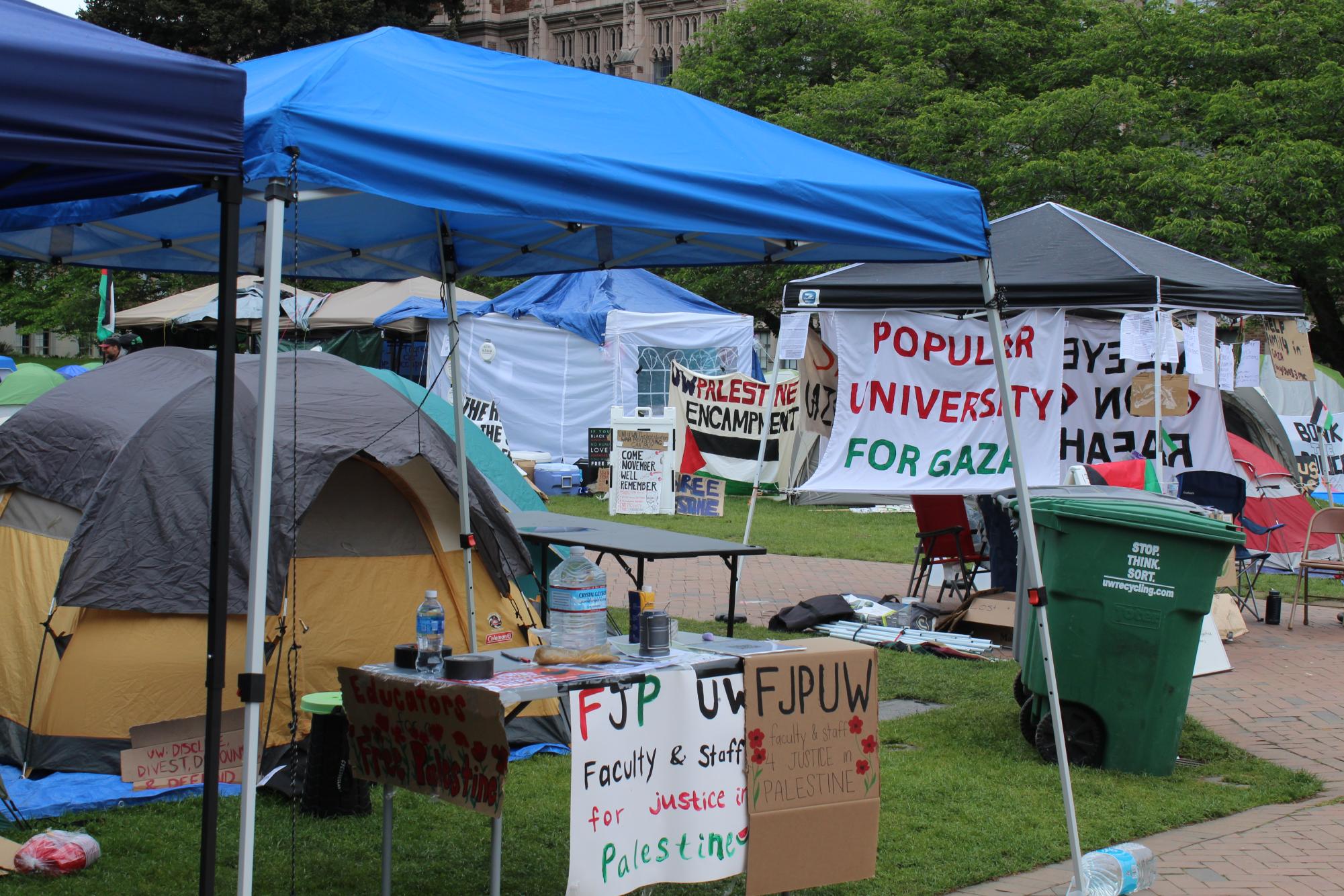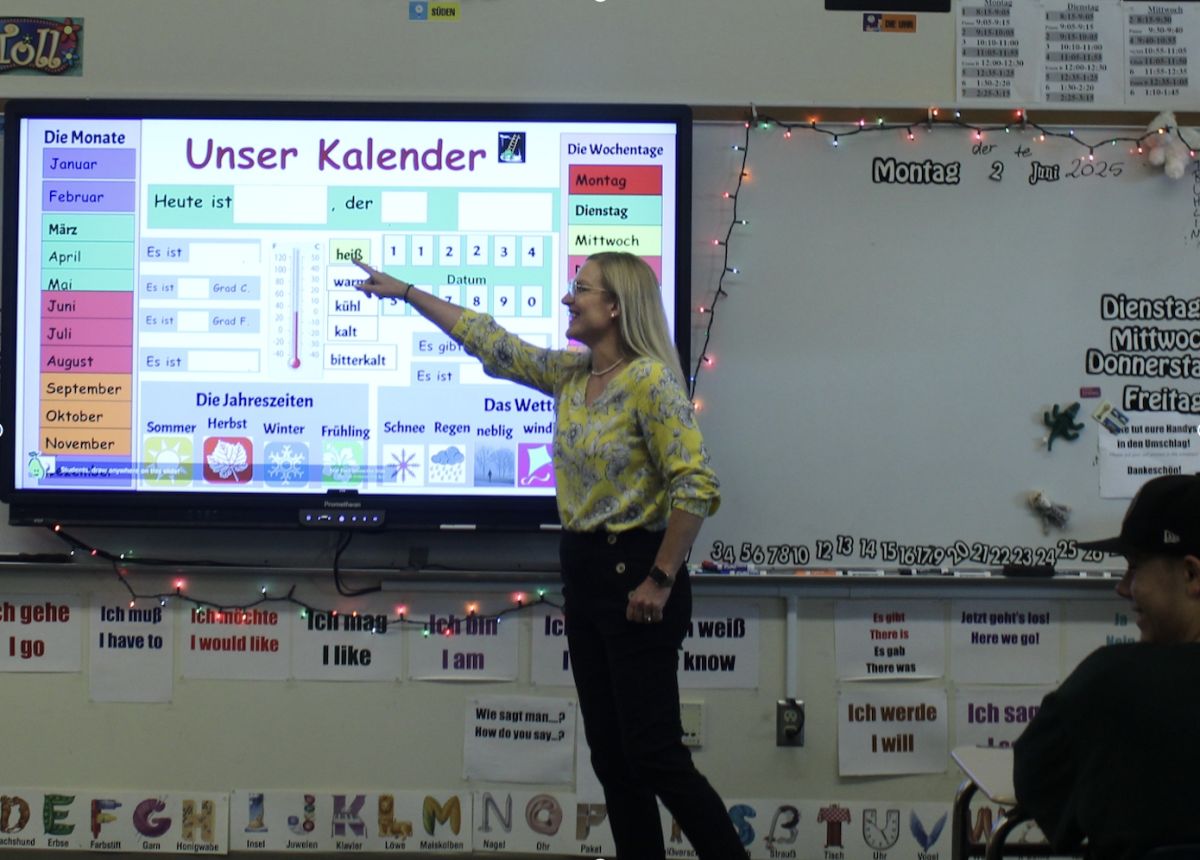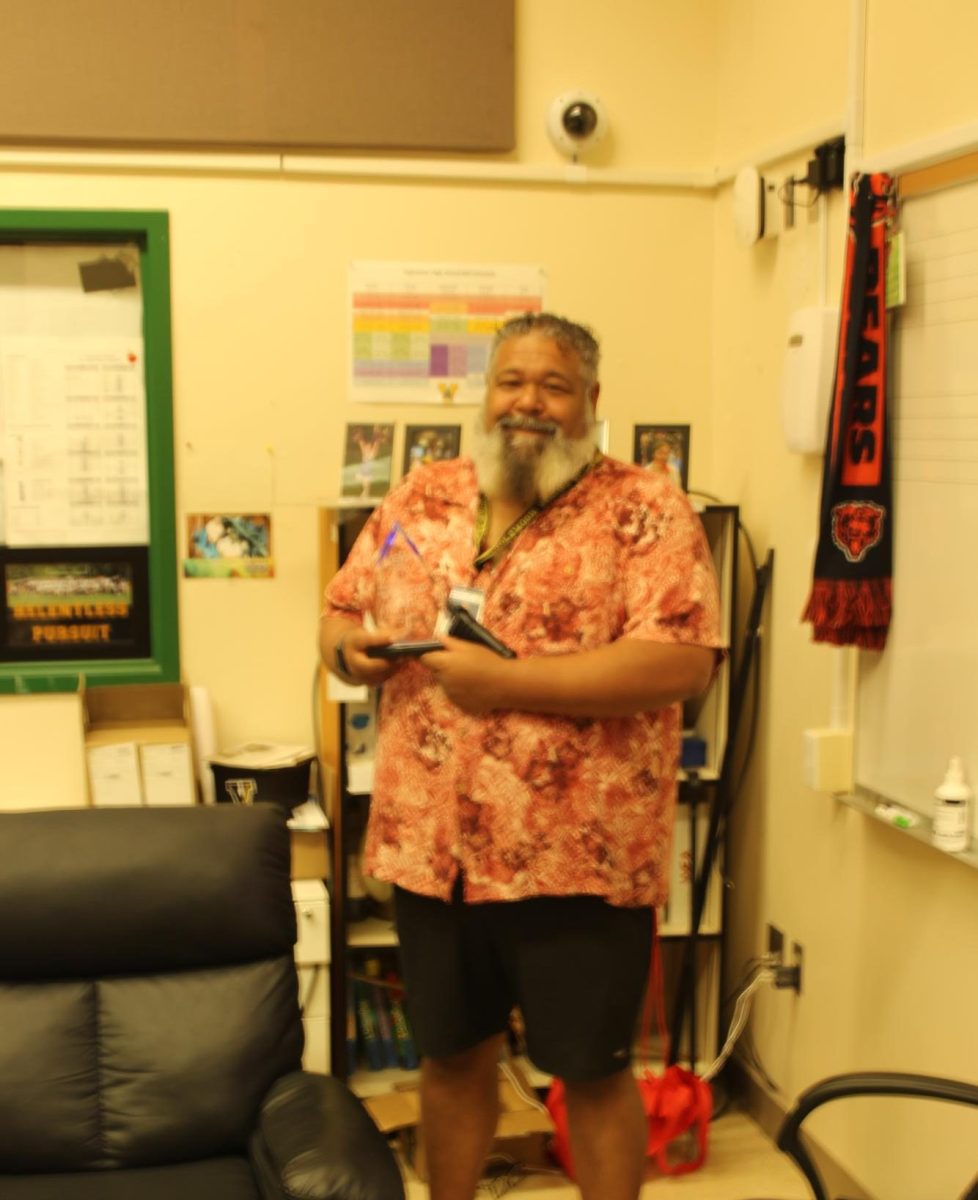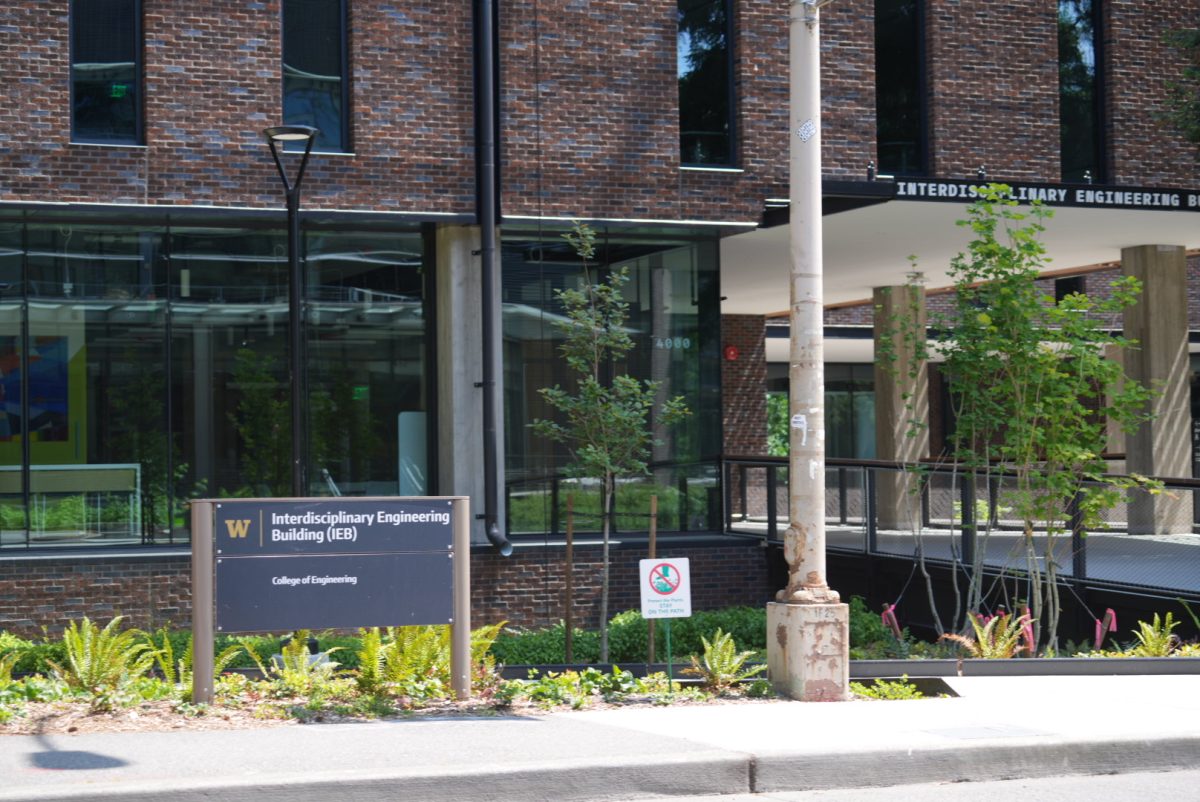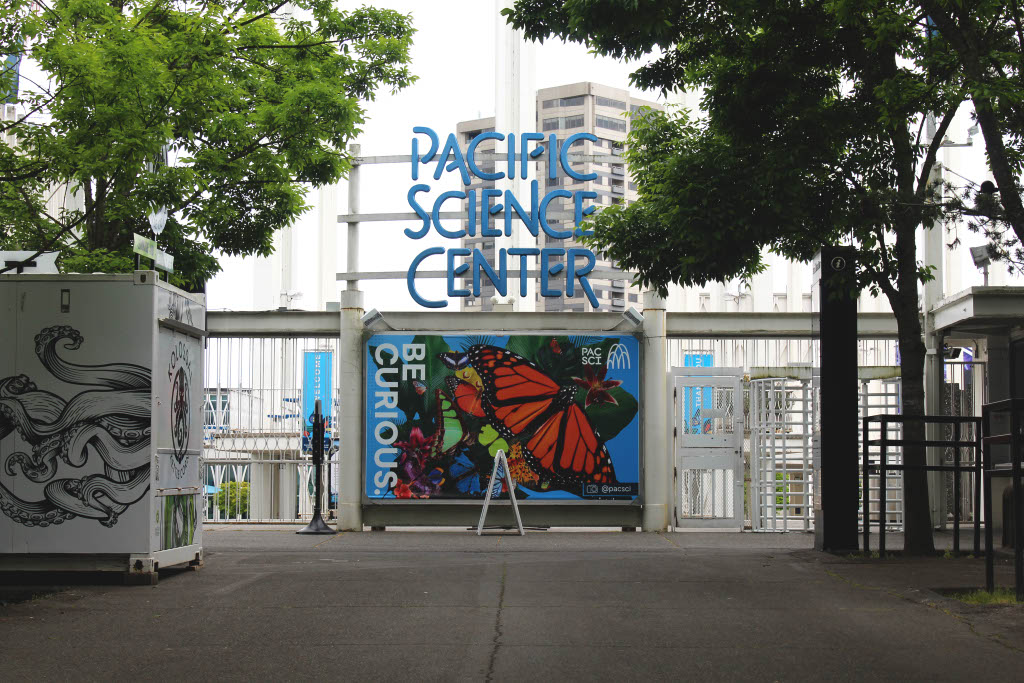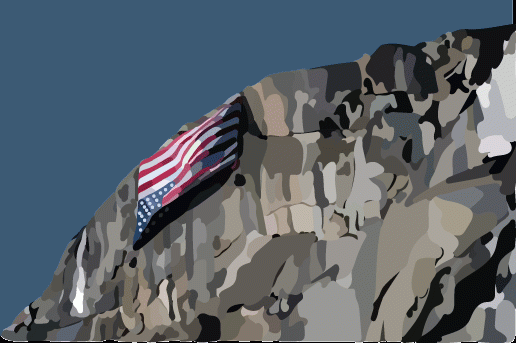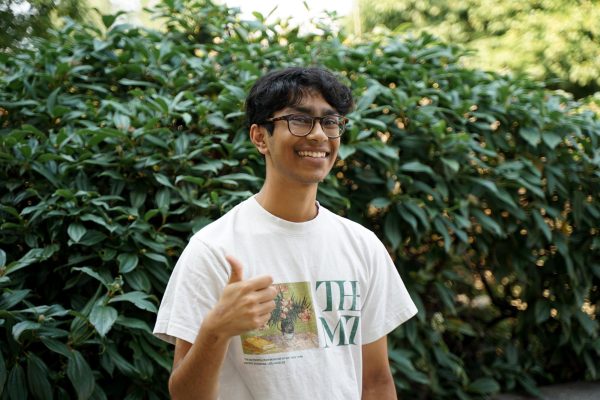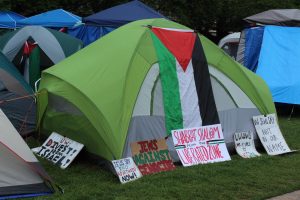
Student protests have erupted across the nation in support of Palestine, demanding Israel’s immediate cessation to the war on Gaza, for universities to divest from Israel and for universities to stop repressing protests in support of Palestine. University students have established protest encampments at numerous universities, including the University of Washington in Seattle.
Although the encampment at UW ended May 17, students are continuing to speak about UW’s connections to Israel and different ways they can support Palestine in the Israel-Hamas war. Such ways include continuing to amplify Palestinian voices, donating to displaced Gazan families, and directing attention to companies who are continuing to support Israel in this war.
Located near Raitt Hall, the encampment on the UW Seattle campus started April 29. Lonnie Watkins* (he/him), a Jewish senior at UW, has been advocating for UW to cut ties with Israel and for them to show more support towards Palestine. Watkins was interviewed while the encampment was still up.
“There’s a lot that the university can do to make a difference for Palestinian liberation that the university is currently not doing,” Watkins said. “I’m here as a student to advocate for this institution of power to exercise the power that it has to divest [from Israel], to cut ties with weapons manufacturers like Boeing, which profits on this genocide, and also to tell the school to stop its repression of students who are protesting around this issue.”
Boeing is a multi-billion dollar American aerospace company founded in Seattle that manufactures commercial, military and space aircrafts. According to a Board of Regents meeting with Boeing and UW, the company has donated over $100 million dollars to the university in the past 107 years. Cutting ties with Boeing is the most significant way that UW could materially divest from Israel.
Additionally, as indicated in a background document by Boeing titled “Boeing in Israel,” Israel has paid the company billions of dollars for missiles, bombs and fighter jets. On top of this, Boeing has maintained significant ties with Israel through various avenues, including defense contracts and collaborative aerospace ventures. This includes partnering with Israeli aerospace firms to create missile defense systems and unmanned aerial vehicles. Boeing, as well as several other aerospace corporations, has aided Israel in its attack on Gaza through their military aircraft.
Some UW students were doubtful that the encampment would lead to UW divesting from Boeing. Vash Mavrinac (he/him), Inglemoor alumni and computer science major at UW, said that cutting ties with Boeing wouldn’t be the best thing for UW to do.
“Boeing gives UW millions of dollars, like with grants and stuff. They’re super intertwined with Boeing. […] They’d have to take from (student) tuition if they did so.” Mavrinac said.
Watkins said many protesters were willing to keep protesting until their demands were met. He said that, the community at the encampment became a beautiful experience.
“It’s been a wonderful process to work through those issues and bolster our space together around our mutual commitment,” Watkins said. “As a student, I feel like it’s always been really difficult to share space and time with other students at UW. (…) This space has allowed me to meet more of my fellow students, and to spend free time together, to talk together, to ask questions together and to learn to build community together.”
It wasn’t just UW students joining the protest. Many professors and community members who were passionate about the cause joined in solidarity.
“You see faculty members walking through, and you see people who maybe you had a lecture with a year ago or something, and it’s a wonderful thing to just talk and engage,” Watkins said.
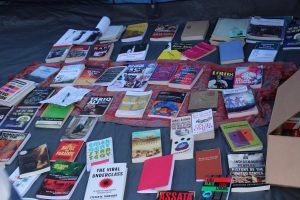
The encampment included spots such as a prayer tent, a community meeting area, a mental health corner, a supply dropoff, food area and a library that protestors call “The Liberation Library.” It spanned an entire half of the Liberal Arts Quadrangle, also known as the Quad. Despite the size, Mavrinac said that the encampment wasn’t much of a hindrance to people trying to get around.
“They kept to the grass areas, and at least as of now, all the walkways are open.” Mavrinac said.
Despite the encampment being open to all, students, including Watkins, faced retaliation due to their involvement. Watkins identifies as Jewish, and he said other Jewish students have made him feel inferior for participating in the protests. He said he wants people to understand that anti-Zionism is not antisemitism.
In general, Zionism is a movement started by Jews to have a safe homeland to practice Judaism. In the Torah — the Jewish holy book — the holy land for Jews is Israel, and this movement brought forth Israel as a state. However, this land that Israel was on was already occupied by Palestinians. In the formation of Israel, thousands of Palestinians were displaced to make way for Jews, and because of this, Zionism is often denounced as an imperialist movement.
“It’s really important for me to express that anti-Zionism is not antisemitism, and it’s sad for me to see institutions want to conflate those two things. I think it’s dangerous because I think using antisemitism or using the claim of antisemitism to shut down a political discussion is dangerous for Palestine,” Watkins said. “I also think that using antisemitism to shut down political activism is dangerous for real antisemitism.”
Watkins said other Jewish people have called him a fake Jew because of his support of Palestine. However, Watkins did say that his family supports his activism, and that several other Jewish people on campus support Palestinian liberation. He said people should have open discussions about the issue and educate themselves on similar topics.
Pro-Israel standoffs were a significant issue for the encampment. Mavrinac noticed counter-protests occurring as a method to retaliate against the encampment.
“There were counter-protests, like a pro-Israel protest. I think they were intending to walk through the Quad,” Mavrinac said. “UW P.D. (police department) came in and prevented them from entering the Quad and prevented the people in the encampment from interacting.”
Although no significant altercations with law enforcement at the UW encampment have occurred since its end on May 17, there have been violent situations across the nation that have sparked talks about police brutality towards students. According to the Crowd Counting Consortium, a database started by Harvard students to document protests in the United States, protests for a ceasefire have occurred at over 130 universities across the country, including NYU, MIT, Harvard, Yale and Stanford. Since May 20, police have arrested over 2,800 students on over 61 different campuses, and many of such arrests have escalated into violence.
The encampment came to an end on May 17, as the protesters and UW came to an agreement. In an email sent to all UW students, UW President Ana Marie Cauce said the university will take steps to support Palestine. Although UW won’t completely divest from Boeing, they will be more transparent with funding and investments. Highlights in this agreement include at least 20 full-tuition scholarships for displaced Gazans, funding towards building a Palestine studies center at UW, and cluster hiring of Palestinian faculty.
“I’m pleased to reach this resolution so that our campus can begin to heal — including by coming together for Commencement next month — and so that once again all UW community members, regardless of religion, race or national origin, can live, learn and work without fear,” Cauce said at the end of her email.
*Name changed using a random name generator for anonymity.



